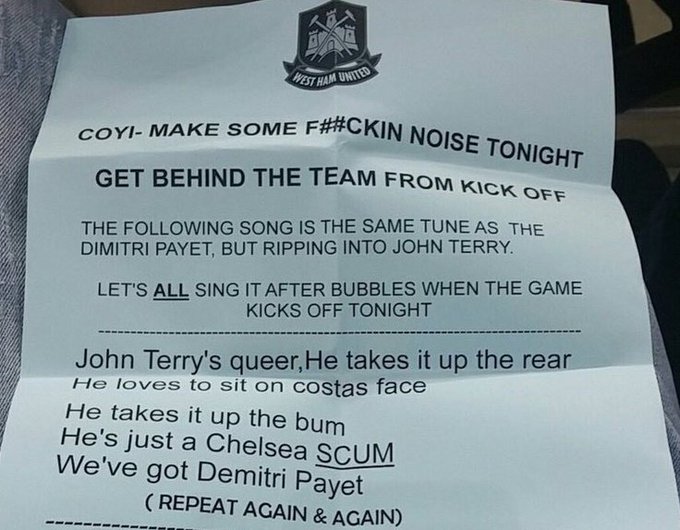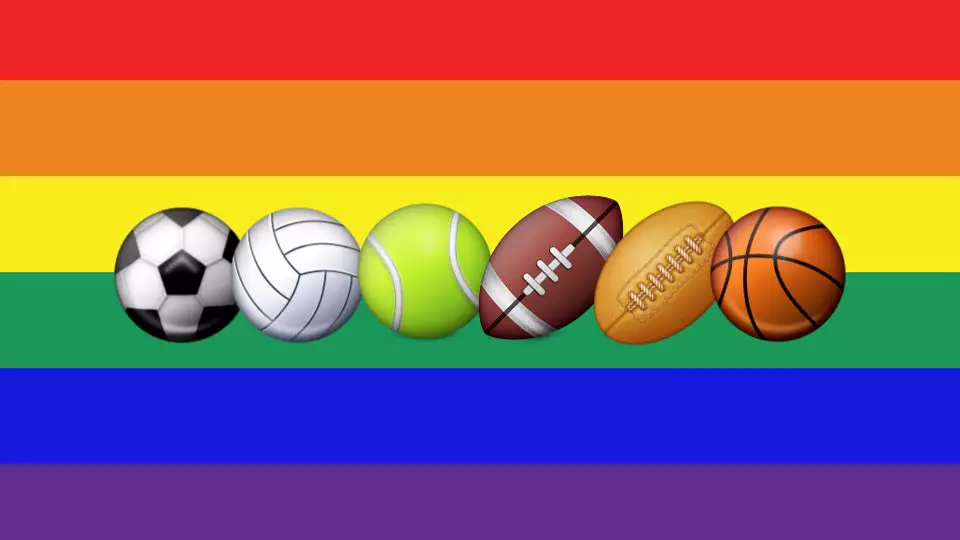
It's 50 years to the day since homosexuality was decriminalised in England and Wales and a lot has changed since then. Legislation has been amended across the UK to virtually eliminate discrimination and overall attitudes towards lesbian, gay, bisexual and transgender people have improved. While many areas of life have got better for LGBT people, however, the sporting arena appears to still be a place where overt homophobia still exists.
Sporting codes and clubs have started initiatives to raise awareness of the issue, but according to a Stonewall/ICM survey conducted last year, more than half of the respondents had heard homophobic or anti-LGBT language at an event. A whopping 81 percent of that occurred at a football match.
A UK government inquiry notes that the issue is prevalent across many different sports. The report, published this year, criticised the BBC for including Tyson Fury on its shortlist for Personality of the Year for 2015, despite him making several homophobic comments.
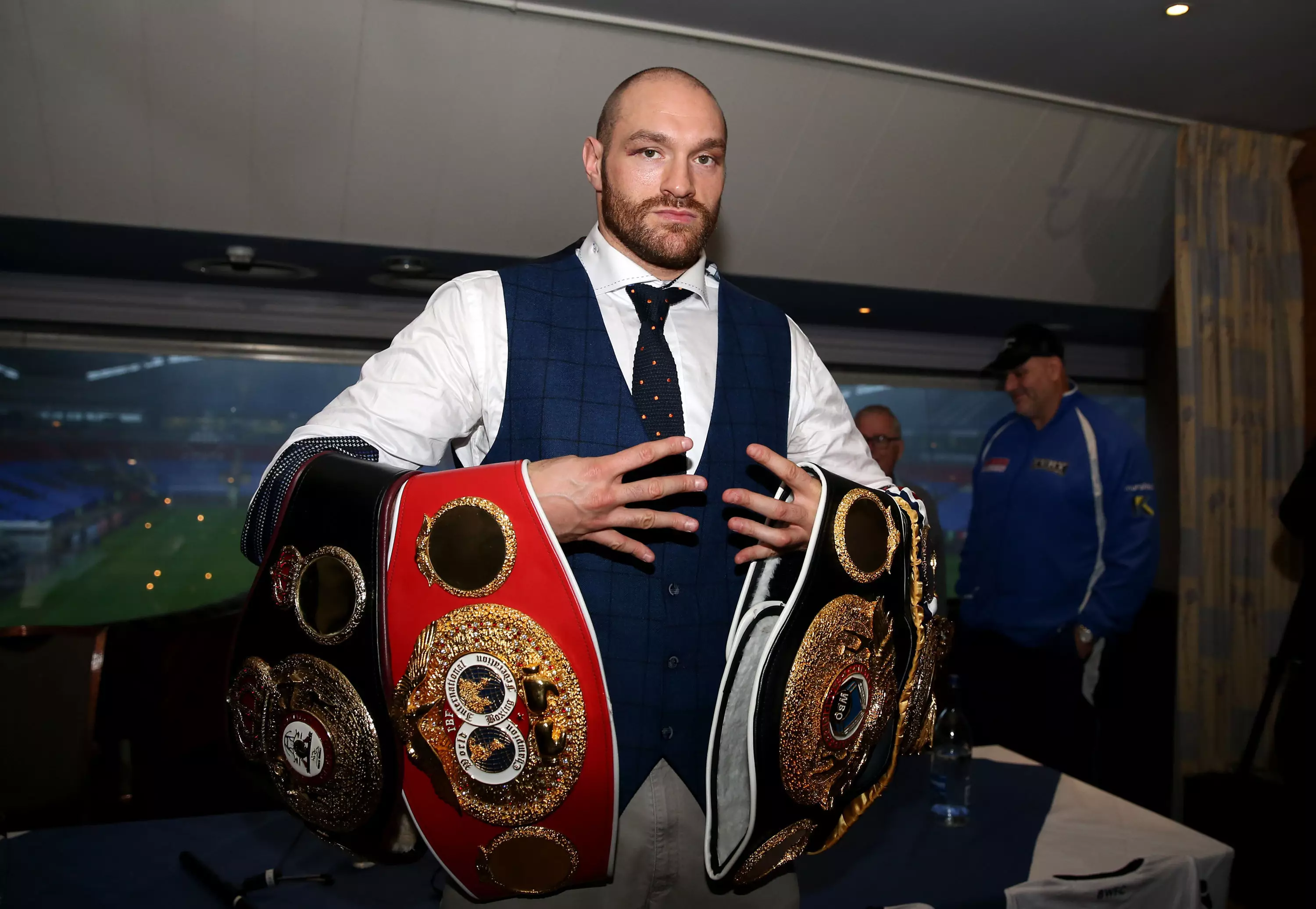
Credit: PA
It adds: "We consider that the inclusion...was symptomatic of homophobia not being taken seriously enough in sport. It provides an example of how homophobic abuse is allowed to pass unchallenged too often."
FA Chairman Greg Clarke also raised eyebrows when he cautioned footballers against coming out because he said the sport isn't ready: "If they want to take that risk, I would respect them and support them. But we can't promise to provide them at the moment with the required protection. We need to redouble our efforts to provide that safe space."
A BBC Radio 5 live survey found eight percent of respondents would stop watching their team if it had an openly gay player. Graeme Le Saux, who suffered a tremendous amount of homophobic abuse during his footballing career despite being straight, wrote in the Guardian: "If that eight percent are so appalled at the thought of a gay player being on their team then we should ask them to step forward, own their views and we can just ban them. They're not welcome in football." The study also found that 18 percent of people believe that gay people should 'keep it to themselves'.
A prime example of the homophobia that exists occurred last year when leaflets were handed out before a match between West Ham and Chelsea.
While that might seem innocuous to some, it's damaging to the players and spectators who are LGBT. Keegan Hirst was the first UK rugby league player to be openly gay when he came out in 2015, and he admits that he's been lucky not to have suffered much abuse on the field or from the sidelines.
But the 29-year-old says it's infuriating when it happens to anyone in sport, telling LADbible: "You get angry, because someone didn't say it in person. It's cowardice really, and when people do shout things from the stands at players, they wouldn't do it if they were stood next to them.
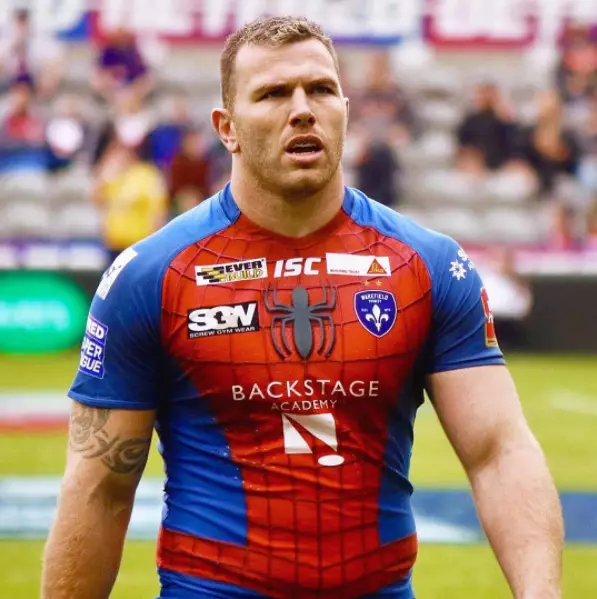
Credit: Keegan Hirst/Instagram
The UK government inquiry found that while many sports are prone to homophobic abuse, football is lagging behind in efforts to stamp it out, stating: "We are very concerned that, despite the significant change in society's attitudes to homosexuality in the last 30 years, there is little reflection of this progress being seen in football."
Keegan reckons the sport is the worst for homophobic abuse for one particular reason: "As a normal person, when you come out, you might come out to 20 or 30 people. As a rugby league player, you might come out to 10,000 or so people.
Advert
"But if you're a Manchester United player; you're coming out to millions and millions of fans and you're opening yourself up to comments from all those people that aren't going to be all necessarily positive. Especially with football, there are plenty of fans from different religions, which might not be tolerant, or where being gay is still illegal."
He adds that sporting code bosses need to treat homophobia on the field and in the stands in the same way they've tackled racism: "The coverage and intensity which racism received, homophobia should be up there with it. Education and clamping down on the people who don't want to be educated is an integral bit."
The UK government says there needs to be more role models, safe spaces, campaigns and education to help stamp out the problem as well as zero-tolerance towards offenders: "A tougher approach across the board would go some way towards sending a clear message that the issue will no longer be ignored."
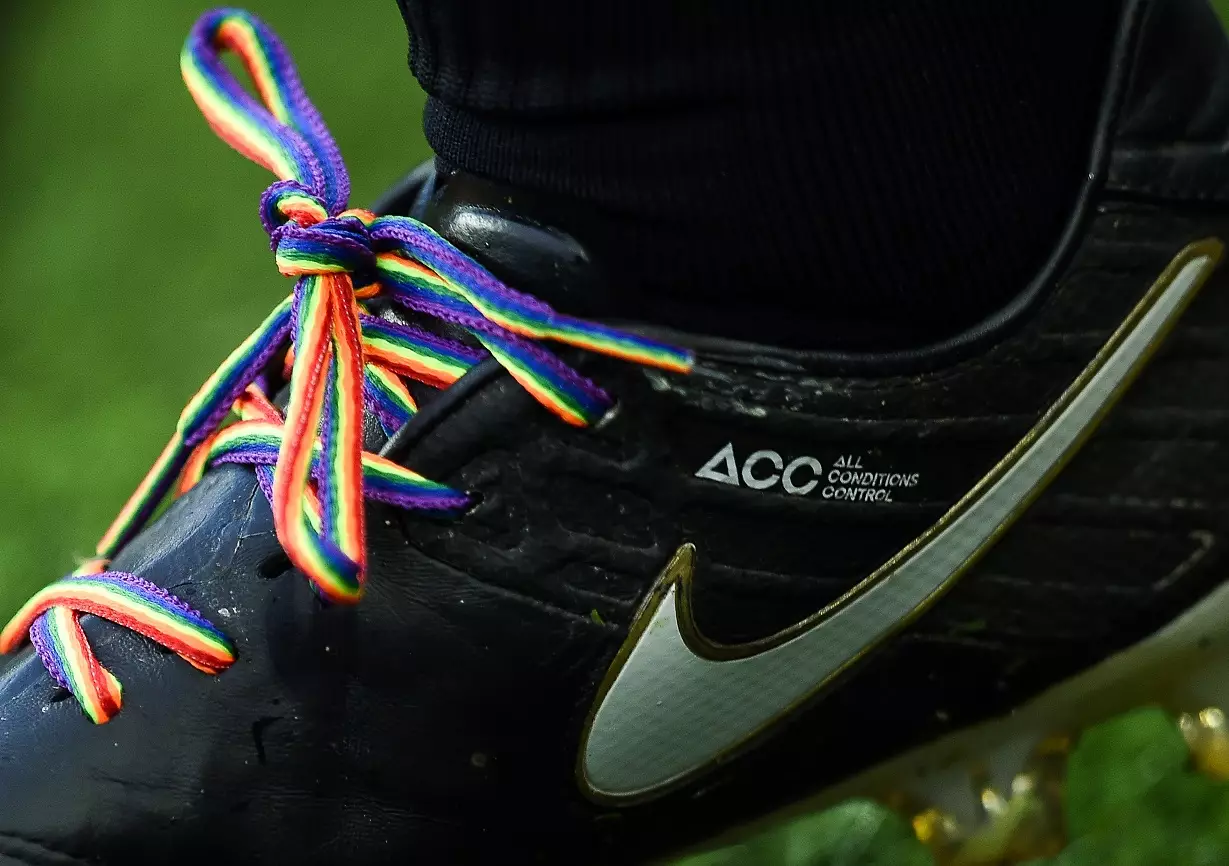
Credit: PA
Advert
The 'Rainbow Laces' campaign has been a brilliant approach to encouraging a conversation about the issue. During visits to schools, universities and colleges as well as sporting groups from club level to top tier teams, campaigners get people to sign the pledge which states: "I commit to make sport everyone's game. I will show my support for LGBT fans and players on and off the pitch. If I hear anti-LGBT language, I will challenge it. I will work to make every part of sport welcoming of LGBT people."
It also appears that the world of sport is stepping up its game in terms of zero-tolerance.
Keegan says a fan was banned from his former team, the Batley Bulldogs, because they tweeted homophobic abuse at him, while Castleford rugby union club was fined £40,000 after fans hurled homophobic slurs against Gareth Thomas.
The FA also came down hard on Coventry City defender Chris Stokes, after he used the word 'faggots' in a tweet last year. Despite his apology for using the derogatory term, he was suspended for one match, ordered to attend an FA education course and fined £1,000 ($1,302).
Advert
That amount for a League Two player wouldn't exactly rock their finances; and the differences in monetary penalties in those two cases illustrates how football has a lot of catching up to do. It's good to see some action being taken, but it's fair to say there's still a lot more work ahead.
Hopefully, the more people talk about the issue and call it out when it happens, the less we will see it in the future.
Featured Image Credit: Pixabay/Emojis